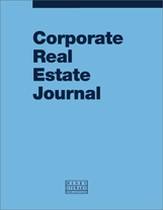Contemporary open plan offices as the progenitors of the future workplace
Abstract
The contemporary open plan office has been the subject of misunderstandings grounded more in norms and ideology than in the best science has to offer. Moreover, research of open plan offices is consumed with little regard for the research’s limitations and an understanding of the nuances needed for the research to have greater credibility. These include the limitations of poorly defined research settings and fragmentary research methods and analyses at the expense of a holistic understanding of the office under investigation. Unfortunately, these and other limitations reinforce a reactive and speculative stance by CRE toward office design and research. In this paper, we cover the challenges in research design and interpretation that have contributed to the ongoing debate about open plan offices and how to resolve these challenges. Then, we will share strategies to catapult CRE portfolios toward successful flexibility for the future. The strategies include mixed methods research in tandem with innovative user-based design research and delivery technologies.
The full article is available to subscribers to the journal.
Author's Biography
Nicholas Watkins PhD is Gensler’s performance analytics manager. His professional work focuses on the interactions between humans and their built environments that reflect excellence in design and contribute to well-being and productivity. Nicholas’ research findings on workplace and healthcare settings can be found in several refereed publications and venues. Nicholas has served as an EDRA board member and chair. His design research of workplace settings has had an impact on organisations’ national and international guideline development. Nicholas was recognised as one of the top ten in healthcare design with an HCD 10 award during the award’s inaugural year.
Beau Everett is vice-president for corporate real estate (CRE), NYU Langone Health and a member of the editorial board of Corporate Real Estate Journal. Beau has spent over 20 years in CRE for mission-driven organisations. He is currently responsible for leasing, acquisition and management in support of NYU Langone’s 10 million sqft CRE portfolio, comprised of clinical, research, education and office uses as well as nearly 1,000 residential units and 700 parking spaces. NYU Langone Health is one of the premier academic medical centres in the US, recently ranked 15th nationally among the best hospitals and third among top medical schools by U.S. News & World Report. Prior to joining NYU Langone, Beau was a deputy director in the CRE department of the New York Metropolitan Transportation Authority, North America’s largest transport network. Beau currently serves on the board of directors of the Third Street Music School Settlement.
Paul Lalli is a member of Gensler’s consulting practice, focusing on space and sustainable strategies to improve CRE performance. His 30 years’ experience includes project management and evaluation of campus master plans, workplace strategy, portfolio strategy and sustainability strategy for industries including pharmaceutical, education, publishing, financial and a range of headquarters projects. Paul developed curriculum and training for the firm’s first education initiative on sustainability and is active in sustainable advocacy, including the US Green Building Council, where he is past chair of the New Jersey chapter and continues to support through board decision facilitation using the Dynamic Governance technique. Prior to Gensler, Paul completed assignments such as the capital strategy programme for the court system of New York, and was vice-president of a research organisation developing building and regional location strategies for financial industry companies in the southeast US.
